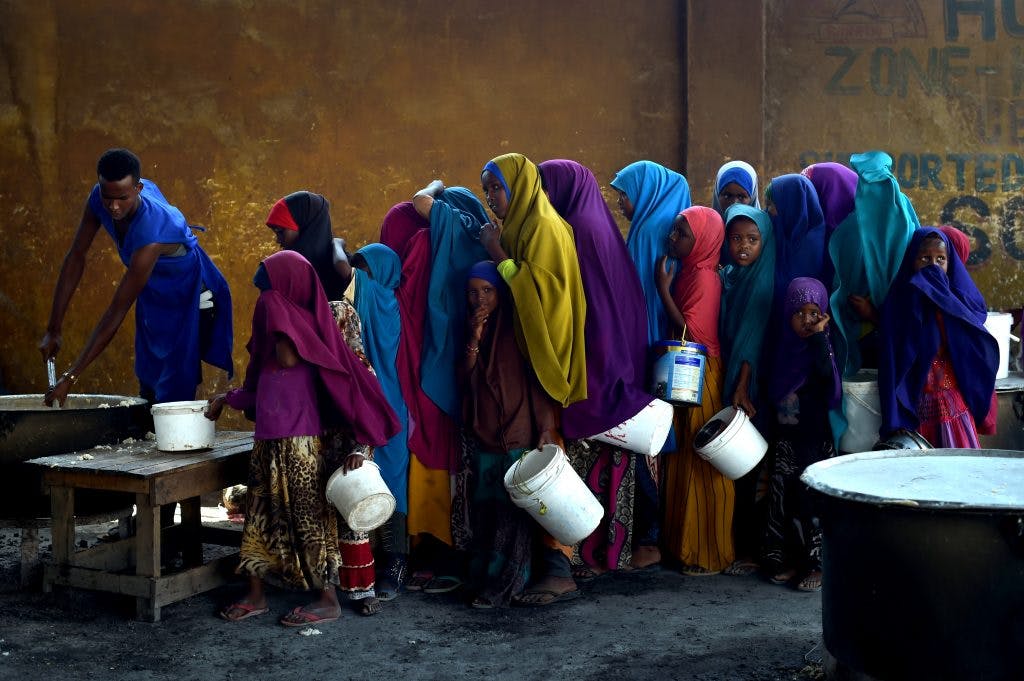As the world is gripped by new and emerging threats, the UN Security Council will be increasingly challenged to respond, acting on its mandate to maintain international peace and security. Germany plans to use its month-long UNSC presidency this July to put one of these growing security risks on the agenda: the impact of climate change on conflict and instability.
The UNSC first considered this association more than 10 years ago, and since then diplomats have raised climate security risks in high-level open debates and informal meetings. But as the effects of a changing climate become more pronounced around the world, a growing group of member states is urging the council to act. Permanent representatives of 10 UNSC member states met with UN Secretary-General António Guterres in June, seeking ways to enhance the inclusion of climate-related security risks at the council. Germany, following a similar commitment from Sweden, pledged to use its two-year term, in 2019-2020, as an opportunity to raise awareness of climate-related security threats and will organize a high-level debate on the topic in July. Climate change is even becoming a key issue in elections for nonpermanent seats on the council: Norway, Kenya, and Canada all placed it high on their list of priorities when campaigning for a 2021-2022 UNSC seat.
While gaining traction and attention, the climate-security connection remains complex. The impacts of climate change, in the form of extreme weather events, warming temperatures, and rising sea levels, act as “threat multipliers,” intensifying preexisting risks. It’s true that extreme weather events won’t automatically trigger the onset of war, but the effects of climate change don’t occur in a vacuum. They interact with economic, societal, and political factors, and they can exacerbate already overwhelming challenges, especially for under-resourced, fragile state governments. In the Middle East and Africa, terrorist groups have exploited vulnerabilities worsened by climate change, supplying food or cash in exchange for recruitment and loyalty, further undermining state legitimacy.
The UNSC has held four open debates specifically on climate security risks — in 2007, 2011, 2018, and 2019 — while also addressing the issue within broader debates on water security, conflict prevention, and complex challenges to peace. Delegations that support addressing the adverse effects of climate change have found more success in discussing the security challenges within country-specific and regional contexts, rather than in overarching conversations about climate change as a global security challenge. For example, the UNSC has included references to climate security risks in resolutions related to Somalia, Darfur, West Africa and the Sahel, Mali, and the Lake Chad Basin.

Photo: UN Photo/Tobin Jones
Security Council members have also found ways to tackle the issue in more informal convenings. In April, on the 50th anniversary of Earth Day, France joined nearly a dozen member states in hosting a Zoom meeting to hear from security experts on the nexus of climate change and conflict. This was the latest of more than a half-dozen gatherings related to climate security known as “Arria-formula” meetings — informal meetings convened at the initiative of a member or members of the council in order to hear directly from individuals, organizations, or institutions.
Although numerous countries have underscored the security implications of climate change, China and Russia have consistently expressed concern that the council’s engagement on this matter encroaches on the mandate and work of other UN entities, such as the United Nations Framework Convention on Climate Change. But countries that support UNSC action on climate consider its engagement on security risks to be complementary to the work of other UN bodies, not as an encroachment or usurpation of their own mandates. They contend that the crosscutting and multifaceted effects of climate change are best addressed by taking a holistic approach, working in concert across the UN system with experts on climate change, peace and security, development, and humanitarian issues.
Experts and diplomats have put forward several recommendations for concrete action by the UNSC. They’ve proposed appointing a special envoy for climate security and enhancing capacities to better anticipate climate-related threats, and have recommended the secretary-general issue a report on climate security every two years. Germany’s intention to make climate-related security threats a key issue at the UNSC in July marks the latest move toward increased awareness and the potential for action. It will not be the last. However, given the polarized views among permanent member states, what matters moving forward is not how often climate security is discussed at the council, but whether UNSC members can reach agreement on concrete steps to address this growing security risk.
Melissa Turley Toufanian is a senior policy analyst for the Climate in Foreign Policy Project, an initiative of the UN Foundation that works to elevate understanding and inclusion of climate change as a foreign policy/national security issue.
Featured Photo: UN Photo/Manuel Elias



 View All Blog Posts
View All Blog Posts



